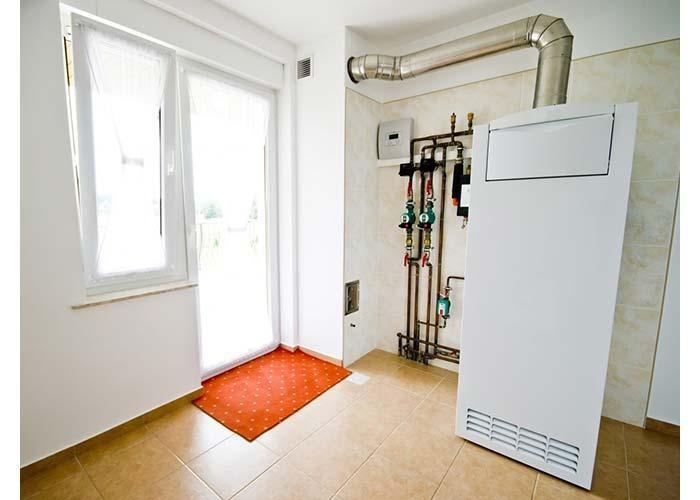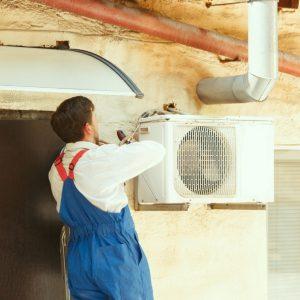Every modern building has an HVAC system, but how well do you understand yours? Depending on when your home was built, the climate you live in, and your energy efficiency needs, you may have one of several types of HVAC systems. It’s important to have a basic working knowledge of your HVAC system, how it functions, and signs that you might need to repair or replace it. It’s also a good idea to know what types of HVAC services are offered by repair companies so that you know what to tell the company if you ever need to call for a repair. Click here for more information!
Types of HVAC systems
No matter what specific type of HVAC system you have, it will likely fall into one of two categories: electric or gas. Each type of system has a different life expectancy and maintenance needs and thus will require a slightly different type of HVAC service. The main difference between the two types of systems is the method used to heat or cool the air.
A gas furnace uses a pilot light, which is a flame inside your furnace that stays lit at all times, to ignite natural gas in the burner. The gas then combusts, and the heat is transferred to the air inside your home via a forced-air system.
Electric furnaces, on the other hand, do not use a flame to heat the air. They use electric heating elements to heat the air inside a heat exchanger, then it’s blown out to the rest of the home just like with a gas system.
Under the basic umbrellas of electric and gas, there are several different types of HVAC systems, including ductless mini-splits, packaged heating, and air systems, hybrid splits, and heat pumps. Talking to an HVAC service provider can help you determine which one will work best for your home.
Preventative maintenance service
Preventative maintenance service is a key part of maintaining your HVAC system, especially if it’s older. Generally, it’s recommended that you have HVAC maintenance service done twice per year: once before the start of summer to make sure that your air conditioning system is in good shape, then again before the winter to check on your heating system.
The amount of use you get out of each system will, of course, depend on where you live and the climate, so you may not need as much preventative maintenance for one HVAC system or the other.
Indicators of HVAC problems
Despite having preventative maintenance done, your HVAC system may experience issues from time to time. Keep an eye out for these signs of a problem with your home’s system, and call an HVAC repair company if any of these sound familiar.
Sudden spikes in your utility bills despite little to no change in usage
When your HVAC system is experiencing a problem, it has to work harder to provide the same level of heating or cooling, so your energy bills may rise despite you keeping the home at the same temperature.
Odd smells around your home, such as burning, stale or musty air, or rotten eggs
It’s normal for things to smell a bit funky when your system first starts up for the season due to dust accumulating in the vents, but if the smell persists, call a repair company. If you smell rotten eggs, however, leave your home immediately. This can be a sign of a gas leak.
Cold spots or temperature changes from room to room
In general, your HVAC system should keep up a pretty consistent temperature. So if you’re running into cold spots, think of HVAC problems before you think ghosts.
Banging, buzzing, or squealing noises
Some noise from your HVAC system is normal, such as the sound it makes when it kicks on (usually a sort of click or whirring noise). However, if you start hearing unusual noises like squealing or banging, you might have a problem with your hands.
HVAC repairs
Whenever you notice a problem with your HVAC system, your first step should be to call an HVAC repair company. They will be able to take a look at your system, diagnose the issue, and perform the necessary repairs. Here are a few common problems that require professional repairs:
Pilot light problems
Though the pilot light should stay on at all times, it can go out if a valve is loose or there’s a strong wind. An HVAC technician can relight it.
Blown fuses
If your system is working harder than usual- for example, working to heat your house during a very cold period- it may blow a fuse. Replacing fuses is a relatively simple job for a professional.
Evaporator coils
The evaporator coils are a crucial part of the air conditioning portion of your system. If one is damaged, the refrigerant may start leaking out.
Leaking or poorly insulated ducts
The air ducts in your home may deteriorate over time, causing leaks. Heated or cooled air is transported through the ducts to be blown out into your home, so leaking ducts can waste a lot of energy and increase your utility bills.
HVAC system replacements
The average HVAC system lasts about 12 to 15 years before it needs to be replaced. Chances are, your system will go through a few repairs before you hit the 12-year mark. As it gets older but still seems to be chugging along, you might keep repairing it and trying to extend its life because upfront, a new HVAC system can be an investment.
As your system ages, keep an eye out for increases in your utility bills, more frequent repairs, and uncomfortable or unpredictable temperatures. If you’re noticing these signs, you will likely end up spending enough on repairs over the next few years to make replacing your system the more economic choice.
If you’re considering replacing your HVAC system, give an HVAC service company near you a call. They have the knowledge to help you figure out what type of system will work best for you, as well as provide you with an estimate for the system itself and the actual work.




